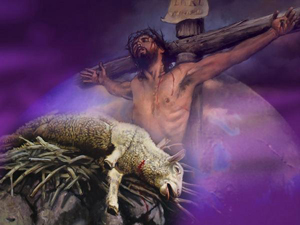The solemn inauguration of the Holy Year of Mercy is marked by the
opening of the Holy Door of Saint Peter's Basilica, December 8th.
2015.
The Jubilee of Mercy was announced by Pope Francis as a
year to be lived intensely in each particular Church, allowing every person to
encounter the mercy of God the Father through diligent labor for the Church's
mission there. The most evident sign of this pastoral care is the chance to
open a Door of Mercy in every diocese. These doors, analogous to the Holy Doors
of the Papal Basilicas in Rome, will permit even people who cannot travel to
Rome to make a Jubilee pilgrimage.
The doors of the churches that will be formally opened
are real and tangible. People will literally be able to walk through them. But it is important to understand the great reality that lies behind the symbolism of this act. Our purpose and destiny in this life is to ENTER - to enter in and be in the very presence of God - to personally encounter God the Father, face to face.
Churches with their ornate entrance doors are a common sight. People see them and walk by them every day. But some people walk up to these doors and enter in. They do so because they belong, it is their privilege to do so. And how is it that they have come have this privilege? The God of MERCY has invited them to come in and they have excepted. They now belong to the household of God the Father. This is their home, they have the right to enter.
In Matthew's gospel, chapter 22: Jesus frames these mysteries in the form of a beautiful parable, the king's wedding banquet and the invited guests. The first group invited are too busy and don't come. Then the king instructs that any and all be invited. Go therefore to the main roads and invite to the wedding feast as many as you find. And those servants went out into the roads and gathered all whom they found, both bad and good. So the wedding hall was filled with guests.
Those hearing Jesus parable understood that it was required, as a sign of respect and honour, that everyone invited wear a wedding garment when attending a wedding celebration. But these underprivileged of the streets would have no means of obtaining one. Implied in Jesus parable, that the king had provided each one with a wedding garment, covering their wretchedness with dignity and honour.
Churches with their ornate entrance doors are a common sight. People see them and walk by them every day. But some people walk up to these doors and enter in. They do so because they belong, it is their privilege to do so. And how is it that they have come have this privilege? The God of MERCY has invited them to come in and they have excepted. They now belong to the household of God the Father. This is their home, they have the right to enter.
In Matthew's gospel, chapter 22: Jesus frames these mysteries in the form of a beautiful parable, the king's wedding banquet and the invited guests. The first group invited are too busy and don't come. Then the king instructs that any and all be invited. Go therefore to the main roads and invite to the wedding feast as many as you find. And those servants went out into the roads and gathered all whom they found, both bad and good. So the wedding hall was filled with guests.
But when the king came in to look at the guests, he saw
there a man who had no wedding garment. And he said to him, ‘Friend, how did
you get in here without a wedding garment?’ And he was speechless.
Those hearing Jesus parable understood that it was required, as a sign of respect and honour, that everyone invited wear a wedding garment when attending a wedding celebration. But these underprivileged of the streets would have no means of obtaining one. Implied in Jesus parable, that the king had provided each one with a wedding garment, covering their wretchedness with dignity and honour.
- The wedding feast - the union of humanity with divinity - salvation.
- The invited - everyone, good or bad, willing to accept.
- The wedding garment - MERCY, a pure gift - clothing with holiness even the wretched and unworthy sinner.
- The wearing of this garment - a testimony of acceptance and gratitude - faith - "... be merciful just as your Father is merciful." Luke 6:36.
The caption on the official logo for this Jubilee Year reads, "Merciful Like the Father." It sets out the agenda for the Jubilee - to show mercy to all as the Father has been merciful to us.
The work that lies before us in our prayer and study is to acquire a deeper understanding of the Father's Mercy, and how we are to imitate it in our dealings with others. This sets the agenda for Voices in the weeks to come.
The work that lies before us in our prayer and study is to acquire a deeper understanding of the Father's Mercy, and how we are to imitate it in our dealings with others. This sets the agenda for Voices in the weeks to come.
Prayer for the Year of Mercy
Almighty God,
you reveal your love for us
in your Son, Jesus Christ,
who is the face of your mercy.
Pour out your mercy upon us
that we may bring to every person
your goodness and tenderness —
signs of your Kingdom,
present among us.
May we become merciful
like you, Father, are merciful.
Through our Lord Jesus Christ, your Son,
who lives and reigns with you
in the unity of the Holy Spirit,
one God, for ever and ever.
|










